Meet the Archer Center Team
Faculty

Dr. Michelle Chin-Miller (Ph.D., Texas A&M University) teaches the Policymaking Process class for the Archer Fellowship Program, a course she has taught since September 2014. In addition to serving as the academic director for the Archer Center, she also holds an appointment as a clinical associate professor in the Hobson Wildenthal Honors College at The University of Texas at Dallas. She also supervises the Archer Center Independent Study and Research class for the Graduate Archer Fellowship Program. Dr. Chin-Miller brings to the classroom over 20 years of experience as a congressional policy advisor, political scientist, and educator. Her research has been published in the Journal of Politics, American Politics Review, and Electoral Studies.
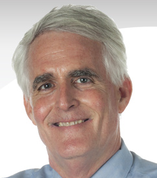
Dr. John Daly (Ph.D., Purdue University) teaches the Advocacy and Politics class for the Archer Fellowship Program, a course he has taught since the program’s inaugural class in spring 2001. He is the Liddell Centennial Professor of Communication, University Distinguished Teaching Professor, and TCB Professor of Management at The University of Texas at Austin, as well as a University of Texas System Distinguished Teaching Professor. Dr. Daly's interests focus on practical ways of improving the communication skills of individuals. Thus, he has examined topics such as shyness, personality differences in communication, communication difficulties people experience in their personal and professional relationships, influence and advocacy skills, and interpersonal behavior in organizations. He has authored more than 100 scholarly articles, served as editor of two academic journals, and produced more than a dozen books, including "Advocacy: Championing Ideas and Influencing Others" (Yale University Press), and the "Handbook of Interpersonal Communication" (SAGE). He has also consulted with numerous organizations across the world, both public and private, on communication-related issues. He has worked in numerous political campaigns and with many local, state, and federal agencies, including the White House. While at UT Austin, Dr. Daly has been the winner of every campus-wide undergraduate teaching award.
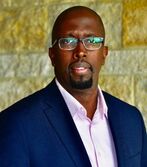
Shema Mbyirukira (J.D., The University of North Carolina at Chapel Hill; B.S., Birmingham Southern College) leads the Politics of National Memory class for the Archer Fellowship Program. As vice president and deputy general counsel of information technology and artificial intelligence at Verizon, Professor Mbyirukira (m BEER ru keera) leads the legal team supporting the Global Technology Services and Artificial Intelligence organizations within Verizon Global Services. Prior to joining Verizon, Professor Mbyirukira held various positions in Deloitte’s Federal Cybersecurity and Practice and Ernst & Young’s Technology Risk Services Group. Professor Mbyirukira also practiced as a corporate attorney, specializing in insurance litigation and international trade compliance. Throughout his career, Professor Mbyirukira has been active in criminal justice reform. While in law school, he worked with the Center for Death Penalty Litigation and helped launch Verizon’s Criminal Justice Reform Pro Bono Program, where he is currently working on re-sentencing cases for children sentenced to life in prison without parole.
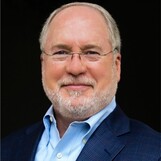
William (Bill) Shute (J.D., University of Houston; B.A., The University of Texas at Austin) teaches the Inside Washington: Policymaking from the Ground Up class for the Graduate Archer Fellowship Program. Professor Shute is a government relations expert, executive management professional, high-tech start-up advisor, and podcast creator/host with thirty-two years of experience working in and around the federal government. He is currently chair of the Scholars Advisory Board for Dome Compass, Inc., a nonpartisan mobile platform for federal policymakers and the creator and host of the podcast 80-Proof Politics – Distilling the Art of Advocacy (80ProofPolitics.com). Shute was most recently an executive officer with The University of Texas System, serving as vice chancellor for federal relations for eighteen years, where he lead the System’s Office of Federal Relations. Before joining the UT System in September 2001, Shute spent eleven years as executive director of federal relations for SBC Telecommunications, Inc. He also worked as senior vice president in the government relations firm R. Duffy Wall & Associates and was a legal fellow for the National Association of Broadcasters. Prior to working for SBC, he was legislative assistant to former U.S. Representative Bob Whittaker (KS-5) and was responsible for several Commerce Committee and Judiciary Committee issues. Shute is a member of the State Bar of Texas having attained his J.D. from the University of Houston and a B.A. with honors from The University of Texas at Austin. He currently serves as the executive director of the LBJ School of Public Affairs Washington Center.
Lecturers
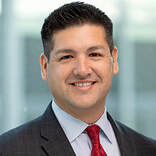
John Amaya is a lecturer at the Archer Center, where he supervises Graduate Archer Fellows in the National Security and Global Affairs Policy Working Group and undergraduate Fellows in Dr. Chin-Miller’s Policymaking Process class. He is currently a partner at Porter Wright Morris & Arthur LLP in their Washington, D.C., office and a member of the firm’s Litigation Department. In this role, he represents companies, institutions, foreign sovereigns, and individuals in connection with federal investigations, global immigration, cross-border compliance, related litigation, and congressional inquiries. Prior to this role, Professor Amaya was an attorney with Harris, Wiltshire & Grannis in Washington, D.C., as a member of the firm’s litigation and investigations practice. Professor Amaya was previously appointed by President Barack Obama to serve as deputy chief of staff for U.S. Immigration and Customs Enforcement and as a counselor to the director of U.S. Citizenship and Immigration Services. He also served as senior counsel to the then-chairman of the U.S. Senate Judiciary Committee, Senator Patrick Leahy (VT), and he began his career as a trial attorney at the U.S. Department of Justice. Professor Amaya earned both his bachelor's degree and law degree from the University of Washington and his master's degree in law from the Georgetown University Law Center. Note: Professor Amaya is currently on leave.
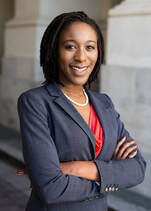
Yvette Badu-Nimako (Bae-doo Knee-MACK-oh) is a lecturer at the Archer Center, where she supervises undergraduate Archer Fellows in Dr. Chin-Miller’s Policymaking Process class, and Graduate Archer Fellows in the National Security/Global Affairs Policy Working Group. She is currently a counsel at the Consumer Financial Protection Bureau (CFPB), where she contributes to the formulation, implementation, and interpretation of laws, regulations, and rules within the agency's purview. Prior to joining the CFPB, Professor Badu-Nimako was the interim executive director of the National Urban League's Washington Bureau, where she led the office's work in advancing economic empowerment priorities for Black and underserved communities. Her legal background includes roles as senior counsel and democratic legislative director for the House Oversight Committee under the late Chairman Elijah E. Cummings, where she led investigations into the applications of Artificial Intelligence in both private and public sectors and its impact on consumers, as an attorney advisor at the U.S. Department of Justice, and as counsel for House Democratic Leader Hakeem Jeffries. Professor Badu-Nimako has also effectively managed government oversight and investigations and legislative priorities for the CFPB and Match Group (global technology parent company of Tinder, Match.com, and Hinge). Professor Badu-Nimako received her J.D. from Georgetown University Law Center and her B.A. in Government and English from Georgetown University.
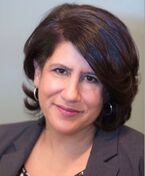
Rosaline Cohen is a lecturer at the Archer Center, where she supervises Graduate Archer Fellows in the National Security and Global Affairs Policy Working Group. For over twenty years, Professor Cohen has established herself as a trusted thought leader on homeland and national security matters and Congress. Currently, she is deputy director of government and external affairs for the Lawrence Livermore National Laboratory. From 2007 to 2023, she served as chief counsel to Chairman Bennie G. Thompson and the Democrats on the Committee on Homeland Security. In this capacity, she develops and advances the policy priorities of committee Democrats and the Democratic caucus. Professor Cohen manages a diverse professional staff of policy experts and attorneys through all phases of the policymaking process on issues ranging from counterterrorism and acquisitions to cybersecurity and infrastructure protection to border and immigration. In the course of carrying out her duties, she collaborates with House leadership, Republican committee staff, House and Senate staff on other committees, the Executive Branch, and private sector stakeholders. Prior to joining the Committee on Homeland Security staff, Cohen worked for U.S. Representative Louise M. Slaughter (NY) and former U.S. Representative Ken Bentsen (TX), where she managed a broad portfolio of issues that included committee work with the House Budget Committee (2000-2002) and House Select Committee on Homeland Security and House Rules Committee (2002-2005). Professor Cohen holds a J.D. from the University of Houston Law Center (1999) and a B.A. from The Elliot School of International Affairs at George Washington University (1994). Note: Professor Cohen is currently on leave.
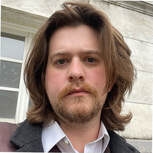
Dr. Aaron Conrado is a lecturer at the Archer Center, where he leads discussion sections in the Politics of National Memory class. Previously, Dr. Conrado was a Science and Technology Policy Fellow at The American Association for the Advancement of Science. In this role, he supported the Office of Stability and Humanitarian Affairs at the Department of Defense, working on peacekeeping policy, including UN reform, improving performance, and building partner capacity. As a Graduate Archer Fellow in the summer of 2018, Dr. Conrado interned at the White House Office of Science and Technology Policy, where he worked on policy topics such as STEM education, GMOs, AI, biomedical research, and biosecurity. Dr. Conrado holds a B.S. in microbiology from The University of Oklahoma and a Ph.D. in microbiology and molecular biology from The University of Texas at Austin. He has also published several peer-reviewed scientific research papers on horizontal gene transfer in Vibrio cholerae. Note: Dr. Conrado is currently on leave.
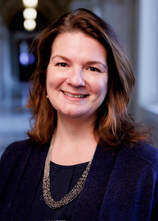
Dr. Janna Deitz is a lecturer at the Archer Center, where she leads discussion sections in the Politics of National Memory class. She serves as a senior advisor for the U.S. Capitol Historical Society, the congressionally chartered nonprofit dedicated to sharing the stories of the people, art, and architecture of the U.S. Capitol in a manner that inspires “informed patriotism.” Dr. Deitz leads the Society’s expanded programming for civic education, engaging new partners with strategic outreach to grow the Society’s national impact. Previously, she led outreach and partnership efforts for the John W. Kluge Center at the U.S. Library of Congress and served as senior director of academic & professional development and director of the Congressional Fellowship Program for the American Political Science Association. Dr. Deitz oversaw discipline-wide initiatives in teaching and learning, career development, government outreach, and public engagement and led the discipline’s signature congressional program for the association. A publicly engaged faculty member for fifteen years, Dr. Deitz was a professor of political science and director of public leadership and outreach at Western Illinois University. Her research interests include Congress, congressional elections, women and politics, campaign finance, and civic engagement. Her published works appear in PS: Political Science & Politics, Political Research Quarterly, the Journal of Political Science Education, and edited volumes. In 2011-2012, Dr. Deitz served as an APSA Congressional Fellow working in the U.S. Senate. Inspired by her fellowship experience, she developed a D.C. student internship program and established Ready to Run Illinois, a nonpartisan public leadership training program for women in partnership with the Center for American Women and Politics at Rutgers University. Dr. Deitz received a Ph.D. from the University of Georgia, an M.P.A. from Western Carolina University, and a B.A. with honors in political science from the University of North Carolina at Chapel Hill.
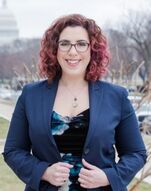
Allison Dembeck is a lecturer at the Archer Center, where she supervises Graduate Archer Fellows in the Education Policy Working Group. Professor Dembeck is the vice president of education and labor advocacy in the Government Affairs Division at the U.S. Chamber of Commerce, focusing on education, labor, and workforce development issues. Before coming to the Chamber in September 2012, Dembeck was the education, labor, pensions, and welfare policy analyst on the Senate Republican Policy Committee—first under the chairmanship of U.S. Senator John Thune (SD) and then under the chairmanship of U.S. Senator John Barrasso (WY). Previously, she spent several years as a legislative assistant for U.S. Senator Judd Gregg (NH), handling education, labor, pension, and child and family issues. She also was manager of government relations for Ceridian Corporation, focusing on pension, health care, and payroll compliance. In addition, Professor Dembeck did two stints with the House of Representatives Committee on Education and the Workforce—the first during former Speaker of the House John Boehner’s (OH) tenure as committee chairman and the second under U.S. Representative John Kline (MN). She has an M.A. from The George Washington University and a B.A. from Binghamton University-State University of New York (SUNY).

Dr. Neetha Devdas is a lecturer with the Archer Center, where she works on incoming orientation trainings, as well as ongoing psychoeducational presentations for Archer Fellows. Dr. Devdas is also an assistant professor of instruction in the Hobson Wildenthal Honors College at The University of Texas at Dallas, teaching undergraduate Introduction to Psychology and Abnormal Psychology. Dr. Devdas has been licensed in Texas as a psychologist since 2012 and has a private therapy practice, Devdas Psychological Services. Her past research and current clinical interests are in the field of trauma psychology, with a special interest in South Asian American populations. Dr. Devdas holds a B.S. in speech-language pathology and audiology from The University of Texas at Dallas, and an M.A. and Ph.D. in counseling psychology from Texas Woman’s University.
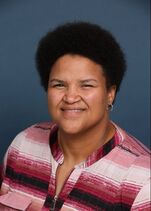
Waverly Gordon is a lecturer with the Archer Center, where she supervises Graduate Archer Fellows in the Health Policy Working Group. In previous semesters, she supervised the General Domestic Policy Working Group. Professor Gordon serves as deputy staff director and general counsel for the Committee on Energy and Commerce for the U.S. House of Representatives. In that role, she helps support efforts on a range of policy issues, including telecommunications, health care, climate change, and consumer protections. Professor Gordon also provides counsel on procedural, jurisdictional, and legal issues. Previously, she served as health counsel for the Committee, where she focused on public health issues, including those related to the National Institutes of Health, Centers for Disease Control and Prevention, and the Substance Abuse and Mental Health Services Administration. Prior to that role, she served as senior policy advisor for U.S. Representative Jan Schakowsky (IL-9) and covered Congresswoman Schakowsky’s Energy and Commerce Committee health portfolio as well as assisted with her work as co-chair of the Democratic Caucus Seniors Task Force. Professor Gordon joined Congresswoman Schakowsky’s staff after serving as a Congressional Black Caucus Foundation Louis Stokes Urban Health Policy Fellow. During her Fellowship, she served in the Office of U.S. Representative Donna Christensen (VI - at Large) and with the Committee on Education and the Workforce. Professor Gordon received a Bachelor of Science from Claflin University, a Master of Health Administration from The Ohio State University, and a Juris Doctor from Duke University.
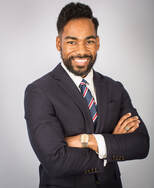
Emmanual A. Guillory is a lecturer at the Archer Center, where he supervises undergraduate Archer Fellows in Dr. Chin-Miller’s Policymaking Process class. Professor Guillory is an advocate, policy expert, and motivational speaker currently serving as the senior director of government relations at the American Council on Education (ACE). In this role, he manages an extensive portfolio of legislative and regulatory issues as a primary government relations resource for the broader higher education community to the United States Congress, the White House, the United States Department of Education, and other agencies as warranted. His portfolio primarily emphasizes the reauthorization of the Higher Education Act (HEA), especially Title IV programs, and the budget and appropriations process. Other issues within his portfolio include accreditation, college costs, student aid, institutional accountability, institutional aid in Titles III and V of the HEA, oversight, privacy, technology, accessibility, and disability, among others. Previously, Professor Guillory served as the director of student and institutional aid policy at the National Association of Independent Colleges and Universities (NAICU), leading the private, nonprofit sector of higher education on policies such as student financial aid; institutional aid programs in Titles III and V of the HEA; and certain regulatory issues. Professor Guillory also served as the director for public policy and government affairs at UNCF (United Negro College Fund, Inc.) for two years and served a decade in the House of Representatives, most recently as a professional staff member on the Committee on Education and the Workforce. He is a 2020 and 2021 recipient of the Hill’s Top Lobbyist recognition in Washington, D.C.; a recipient of the Top Executive Award from Marquis Who’s Who of America; a prior federal negotiator for the Department of Education in 2019 and 2022; and a former president of the Committee for Education Funding, the largest educational coalition in our country, in 2022. He has his own nonprofit organization, where he awards scholarships to students. Professor Guillory earned a Bachelor of Science in psychology from Texas A&M University and his Master of Arts degree in college student personnel from Bowling Green State University. He is currently pursuing his Doctor of Education in higher education management at the University of Pennsylvania.
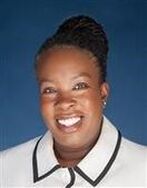
Diedra Henry-Spires is a lecturer at the Archer Center, where she supervises undergraduate Archer Fellows in Dr. Chin-Miller’s Policymaking Process class and Graduate Archer Fellows in the Health Policy Working Group. Since 2015, Professor Henry-Spires has been a frequent guest lecturer with the Archer Center. In 2021, she was appointed to serve as the senior advisor for COVID relief programs to the Administrator at the Small Business Administration. Prior to joining the Small Business Administration, she was chief executive officer of the Dalton Daley Group and also served as a professional staff member for Human Services and Income Security for the United States Senate Committee on Finance. Professor Henry-Spires began her tenure at the Senate Finance Committee in 2006 as a Brookings Institution LEGIS Fellow. She has extensive experience with the legislative process in the United States Congress and experience in collaborating with federal, state, and local governments and organizations. As a member of the Committee's Health Team, she is credited as one of the architects of the Affordable Care Act and with the expansion of unemployment benefits and work supports during the great recession. Ms. Henry-Spires also served for 10 years at the U.S. Department of Health and Human Services, where she was the principal public health advisor on Violence Against Women for the Office on Women’s Health and as such developed national policies in violence against women, HIV/AIDS, and young women’s health. Ms. Henry-Spires is a Pennsylvania State University graduate holding a B.S. in health policy and administration. She also attended Hinksey Institute on Economics, Torbay, and Oxford, England, and she received a certificate on shaping the healthcare delivery system from Harvard University’s John F. Kennedy School of Government. Note: Professor Henry-Spires is currently on leave.
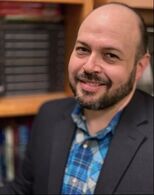
John Kane is a lecturer at the Archer Center, where he supervises undergraduate Archer Fellows in Dr. Chin-Miller’s Policymaking Process class and Graduate Archer Fellows in the General Domestic Policy Working Group. Prior to joining the staff as a lecturer for the Archer Center, Professor Kane was also a frequent guest lecturer for the program. He currently serves as the director of infrastructure and public health for U.S. Senator Carper (DE) on the Senate Committee on Environment and Public Works, where his team oversees federal infrastructure investments ranging from roads to buildings to drinking water to ports, as well as hazardous waste mitigation and toxic chemical management. He has also worked on the Senate Committee on Homeland Security and Government Affairs and the Special Committee on Aging. Professor Kane holds a bachelor's degree in sociology from Vassar College and a master's degree in civil engineering focused on sustainable smart cities from the University of Alabama in Birmingham. He has over 20 years of experience in the private sector and in government, working for both Republicans and Democrats in Congress. Note: Professor Kane is currently on leave.
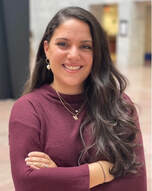
Sandra LaMura is a lecturer at the Archer Center, where she supervises undergraduate Archer Fellows in Dr. Chin-Miller’s Policymaking Process class and Graduate Archer Fellows in the General Domestic Policy Working Group. Professor LaMura is a counsel and policy advisor for the Senate Republican Policy Committee. In this capacity, she advises Republican senators and their staff on education, labor, pensions, life, and values policy. Formerly, Professor LaMura was an oversight counsel for the U.S. Senate Committee on Health, Education, Labor, and Pensions for four years. In this capacity, she leads the Committee’s work on education and labor oversight and the nominations process. In addition, she worked with education and labor policy teams on several priorities including higher education policy. A native of Venezuela, Professor LaMura was raised in Florida. She received her B.A. in political science and economics from the University of South Florida, and her J.D. from the Catholic University of America, Columbus School of Law.
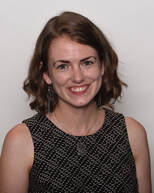
Dr. Mary Nugent is a lecturer at the Archer Center, where she leads discussion sections in the Politics of National Memory class and co-supervises the undergraduate and graduate internship courses. Dr. Nugent is lead advocate at Save the Children, where she manages the early childhood education government relations work for the organization. Prior to working with Save the Children, Dr. Nugent worked in the U.S. House of Representatives as a policy advisor to former U.S. Representative Deb Haaland (NM-1). Dr. Nugent has her Ph.D. in political science from Rutgers University, with expertise in legislative politics, women in politics, and theories of representation. She has taught undergraduate classes in political theory, UK politics, and women in U.S. politics. Dr. Nugent also served as an international debate coach and a lecturer and debate coach at the University of Vermont. Her research has been published in Journal of Politics, European Journal of Political Research, and Party Politics. Note: Professor Nugent is currently on leave.

Lauren Paulos is a lecturer at the Archer Center, where she supervises Graduate Archer Fellows in the Health Policy Working Group. She is the legislative director for drugs in the Office of Legislation at the Food and Drug Administration (FDA). In this role, she directs and manages the FDA's interactions with Congress related to human drugs and biological products. She served on the team that led the FDA’s response to the COVID-19 public health emergency and led the agency’s work with Congress to reauthorize the FDA’s user fee agreements in 2022. Prior to joining the FDA, she served in various capacities within Congress. She served in legislative roles for U.S. Representative Michael Burgess (TX-26) and former U.S. Representative John Culberson (TX-7). She also served as a health legislative assistant for former Senator Orrin Hatch from Utah. During her time with Senator Hatch, she led the Senator’s work on the FDA Reauthorization Act of 2017. Paulos holds a Bachelor of Science in environmental health from the University of Georgia and a Master in Public Health specializing in health policy from The George Washington University. Note: Professor Paulos is currently on leave.
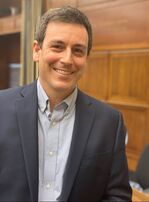
John Piazza is a lecturer at the Archer Center, where he supervises undergraduate Archer Fellows in Dr. Chin-Miller’s Policymaking Process class. He has served as chief counsel on the Democratic staff of the Committee on Science, Space, and Technology since 2009, where he’s been working since 2006. During his time working on the Hill, Professor Piazza has been involved in all aspects of the legislative process, from the initial formulation of a bill to shepherding legislation through the conference process for final passage. Professor Piazza has also been extensively involved in the investigation and oversight work of the Committee and the use of that work to effectuate policy change. During his time on the Committee, Professor Piazza has served under Chairwoman Eddie Bernice Johnson (TX-30) and former Chairman Bart Gordon (TN-6). Prior to his work in Congress, Professor Piazza was a criminal prosecutor in Tucson, Arizona. Mr. Piazza holds a B.A. in environmental science from Columbia College and a J.D. from Washington and Lee University.
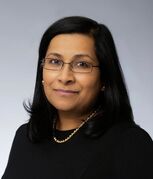
Sue Ramanathan (Rah-ma-nah-thun) is a lecturer at the Archer Center, where she co-supervises the undergraduate and graduate internship courses. Professor Ramanathan is a senior advisor on homeland and national security issues at Deloitte & Touche, LLC. In the Obama administration, Professor Ramanathan was appointed to serve as the deputy assistant secretary of the U.S. Department of Homeland Security Office of Legislative Affairs and as counselor to the U.S. Department of Homeland Security Office of the Secretary. She has also served as the director for homeland security and senior counsel for technology and innovation for the U.S. Senate Committee on Homeland Security and Government Affairs, and was chief counsel and deputy staff director for the U.S. House Committee on Homeland Security. She has served on the Obama-Biden and the Biden-Harris transition teams for the Department of Homeland Security. Professor Ramanathan is a graduate of Georgetown University (certificate in executive coaching), Georgetown University Law Center (LLM), Rutgers Law School (J.D.), and Rutgers College (B.A.).
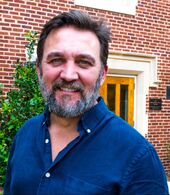
Josh Rushing is a lecturer at the Archer Center, where he leads special trainings in communication and storytelling as part of the undergraduate internship course. A popular guest lecturer with the Archer Center for over five years, Professor Rushing is a seasoned journalist with nearly 30 years of experience in communication. He is a founding member of Al Jazeera English (AJE), which reaches 380 million homes in more than 100 countries and is currently the senior correspondent and host of AJE’s award-winning investigative documentary show Fault Lines. As a U.S. Marine (1990-2004), Professor Rushing played a critical role in the invasion of Iraq as the hand-picked, on-air spokesperson for U.S. Central Command Forward. His appearance in the award-winning documentary Control Room also sparked a national discussion about the role of media in war. A native of Lewisville, Texas, Professor Rushing earned a B.A. in ancient history and classical civilization at The University of Texas at Austin. He has also trained in leadership and warfighting at The Basic School, Quantico, and completed public affairs and journalism training at The Defense Information School. Note: Professor Rushing is currently on leave.
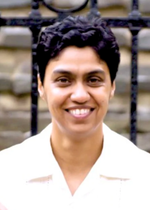
Dr. Sahar Shafqat is a lecturer at the Archer Center, where she teaches the undergraduate and graduate internship courses and has led discussion sections in the Politics of National Memory class. Dr. Shafqat is also the associate dean of faculty and a professor in the Department of Political Science at St. Mary’s College of Maryland, where she focuses on political parties, social and political movements, democratization, ethnic conflict and nationalism, and gender and sexuality studies. Dr. Shafqat received a B.A. from Mount Holyoke College in economics and international relations and a Ph.D. in political science from Texas A&M University. Dr. Shafqat has previously taught at Southwestern University in Texas and Habib University in Karachi. She has published articles in academic journals like Law and Social Inquiry and Asian Survey, in publications like Express Tribune and Baltimore Sun, and has made media appearances with outlets such as Al Jazeera and Democracy Now. Note: Professor Shafqat is currently on leave.

Adrian F. Snead is a lecturer at the Archer Center, where he supervises undergraduate Archer Fellows in Dr. Chin-Miller’s Policymaking Process class. He is currently a partner at Porter Wright Morris & Arthur LLP in their Washington, D.C., office and a member of the firm's Government & Regulatory Affairs and Litigation Practice Group. Previously, Professor Snead was a corporate counsel with Amazon Web Services, where he focused on the intersection between law and public policy as it relates to the adoption of cloud infrastructure by highly regulated entities. He has experience working in all three branches of the federal government and as a trial preparation assistant with the Manhattan District Attorney’s office. Previously, Professor Snead has worked at a national and international law firm and served as a judicial law clerk to the Honorable Royce C. Lamberth of the U.S. District Court for the District of Columbia. During law school, he served as a White House intern in the Domestic Policy Council and spent more than a year interning at the U.S. Department of Justice in both the civil rights and criminal divisions. From 2014 to 2017, Professor Snead served as counsel and foreign policy advisor to U.S. Senator Jeff Merkley of Oregon, a Senate Foreign Relations Committee member. Professor Snead is a proud son of Texas, born and raised in San Antonio. He graduated with high honors from The University of Texas at Austin with a Bachelor of Arts in government. He received his Juris Doctor from The George Washington University Law School.

